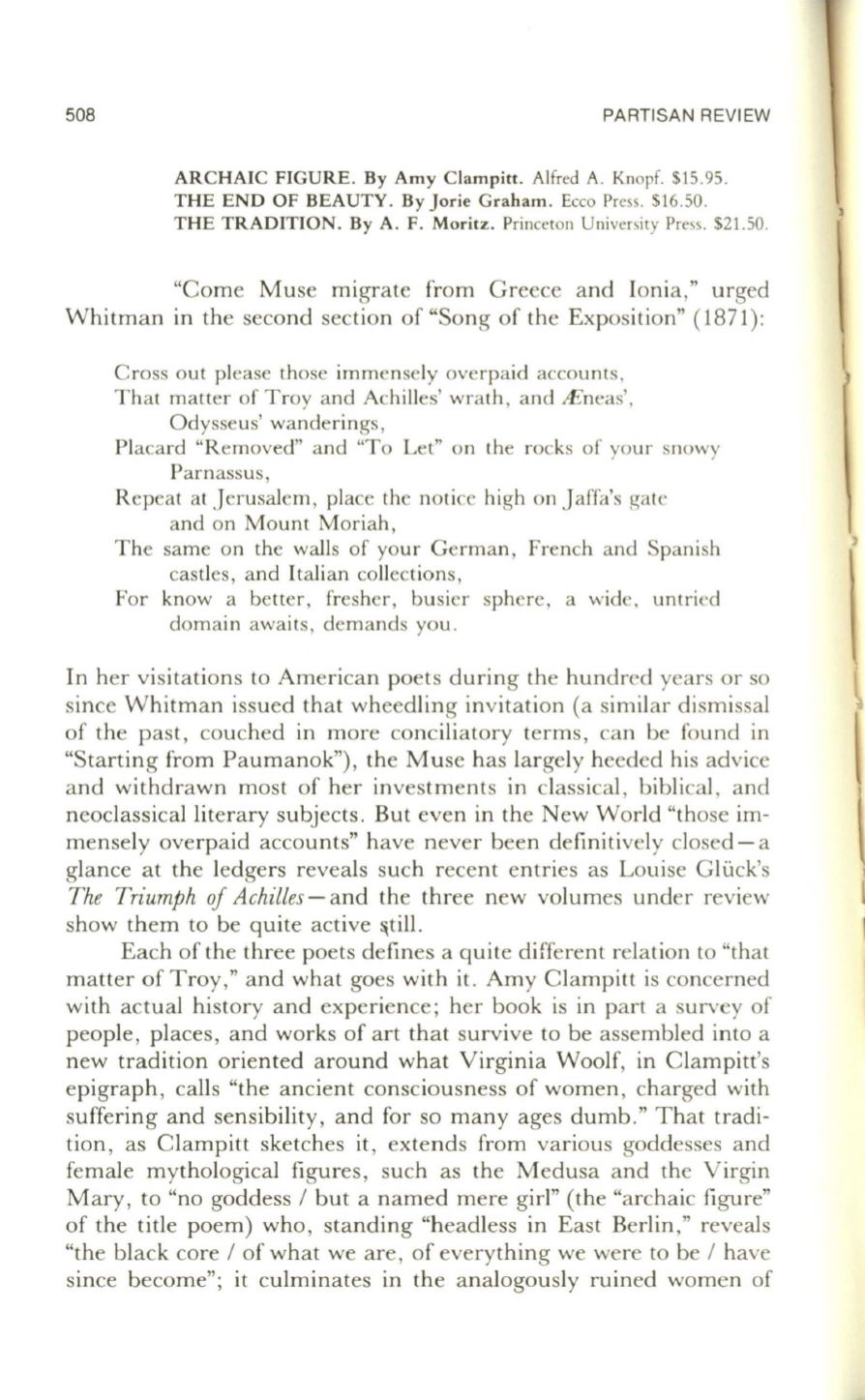
508
PARTISAN REVIEW
ARCHAIC FIGURE. By Amy Clampitt. Alfred A.
Knopf.
$15.95 .
THE END OF BEAUTY. By Jorie Graham.
Ecco Press.
$16.50.
THE TRADITION. By A. F. Moritz.
Princeton University Press.
$21.50.
"Come Muse migrate from Greece and Ionia," urged
Whitman in the second section of "Song of the Exposition" (1871):
Cross out please those immensely overpaid accounts ,
That matter of Troy and Achilles' wrath, and ..Eneas',
Odysseus' wanderings ,
Placard "Removed" and "To Let" on the rocks of your snowy
Parnassus,
Repeat at Jerusalem, place the notice high on Jaffa's gate
and on Mount Moriah,
The same on the walls of your German, French and Spanish
castles, and Italian collections,
For know a better, fresher, busier sphere, a wide, untried
domain awaits, demands you.
In her visitations to American poets during the hundred years or so
since Whitman issued that wheedling invitation (a similar dismissal
of the past, couched in more conciliatory terms, can be found in
"Starting from Paumanok"), the Muse has largely heeded his advice
and withdrawn most of her investments in classical, biblical , and
neoclassical literary subjects. But even in the New World "those im–
mensely overpaid accounts" have never been definitively closed - a
glance at the ledgers reveals such recent entries as Louise Gluck's
The Triumph of Achilles
-
and the three new volumes under review
show them to be quite active
~till.
Each of the three poets defines a quite different relation to "that
matter of Troy," and what goes with it. Amy Clampitt is concerned
with actual history and experience; her book is in part a survey of
people, places, and works of art that survive to be assembled into a
new tradition oriented around what Virginia Woolf, in Clampitt's
epigraph, calls "the ancient consciousness of women , charged with
suffering and sensibility, and for so many ages dumb." That tradi–
tion, as Clampitt sketches it, extends from various goddesses and
female mythological figures, such as the Medusa and the Virgin
Mary, to "no goddess / but a named mere girl" (the "archaic figure"
of the title poem) who, standing "headless in East Berlin ," reveals
"the black core / of what we are, of everything we were to be / have
since become"; it cu lminates in the analogously ruined women of
)
\
~


